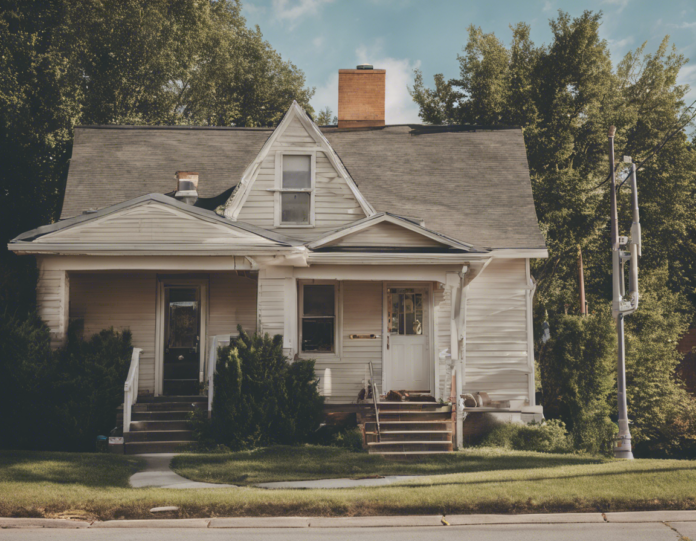Gas leaks at home can be extremely dangerous and potentially life-threatening if not addressed promptly. It is crucial to be able to recognize the signs of a gas leak to ensure the safety of your household. In this article, we will discuss five common signs of a gas leak at home, what to do if you suspect a gas leak, and how to prevent gas leaks in the first place.
Signs of a Gas Leak at Home
1. Strange Odor
The most common sign of a gas leak is the presence of a foul smell similar to rotten eggs. Natural gas companies add a chemical called mercaptan to the gas to give it a distinct odor, making it easier to detect leaks. If you notice this smell in your home, especially near gas appliances or pipes, it is essential to investigate further.
2. Hissing or Whistling Sounds
A gas leak may produce a hissing or whistling sound near the gas line or appliances. If you hear unusual noises coming from your gas stove, furnace, or gas line, it could be a sign of a leak. Do not ignore these sounds as they could indicate a potentially hazardous situation.
3. Dead or Dying Plants
If you have indoor plants that are suddenly wilting, dying, or changing color for no apparent reason, it could be due to a gas leak. Natural gas is toxic to plants and can disrupt their normal growth processes. Keep an eye on your indoor plants and consider the possibility of a gas leak if you notice unexplained deterioration.
4. Physical Symptoms
Exposure to natural gas can cause a variety of physical symptoms in humans, including headaches, dizziness, nausea, fatigue, and difficulty breathing. If you or your family members experience these symptoms suddenly and consistently while at home, it could be due to a gas leak. Seek fresh air immediately and contact a professional for assistance.
5. Bubbles in Standing Water
If you notice bubbles or a disturbance in standing water near a gas line, it could indicate a leak. Gas escaping from a pipe can cause water to bubble as it rises to the surface. Check areas around your home where water collects, such as near the basement floor drain, to detect any signs of a gas leak.
What to Do If You Suspect a Gas Leak
If you suspect a gas leak in your home, follow these immediate steps to ensure your safety:
- Evacuate the premises immediately and leave the doors and windows open to allow gas to dissipate.
- Refrain from using any electronic devices or appliances, including light switches and mobile phones, as they could create a spark and ignite the gas.
- Do not light matches or candles or operate anything that could cause a flame.
- Contact your gas company or emergency services from a safe location and report the suspected gas leak.
- Wait outside until emergency personnel arrive to assess the situation and address the leak.
How to Prevent Gas Leaks at Home
While gas leaks can occur unexpectedly, there are precautionary measures you can take to reduce the risk of a gas leak at home:
- Schedule regular inspections of your gas appliances and pipelines by a qualified technician to check for leaks or wear and tear.
- Install carbon monoxide detectors in your home to alert you to the presence of gas leaks or carbon monoxide buildup.
- Avoid DIY repairs on gas appliances or pipelines, as improper handling can lead to leaks and safety hazards.
- Follow manufacturer’s guidelines when using gas appliances and ensure proper ventilation to prevent gas buildup.
- Educate your family members about the signs of a gas leak and the appropriate actions to take in case of an emergency.
Frequently Asked Questions (FAQs) About Gas Leaks:
1. Can a gas leak fix itself?
No, gas leaks cannot fix themselves. It is essential to address a gas leak immediately to prevent any potential dangers.
2. How can I detect a gas leak if there is no smell?
While natural gas is odorless, gas companies add a scent to help detect leaks. However, in some cases, individuals may have difficulty smelling the odor. In such instances, investing in a gas detector can be beneficial.
3. Can a small gas leak cause symptoms?
Even a small gas leak can cause symptoms in individuals, such as headaches, dizziness, or nausea. It is crucial to address any suspected gas leak promptly.
4. Is it safe to use a gas appliance if there is a minor gas smell?
It is not safe to use a gas appliance if you detect any gas smell. Stop using the appliance immediately, ventilate the area, and contact a professional to inspect for leaks.
5. How often should gas appliances be inspected for potential leaks?
Gas appliances should be inspected at least once a year by a qualified technician to ensure they are functioning correctly and to detect any potential leaks early on.
Being able to recognize the signs of a gas leak and knowing how to respond in such an emergency are crucial for the safety and well-being of your household. By staying vigilant, conducting regular maintenance, and following safety guidelines, you can minimize the risk of gas leaks and ensure a safe living environment for you and your family.









